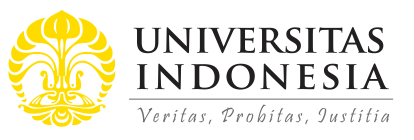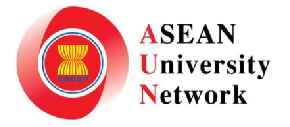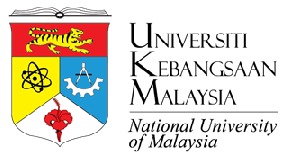
Abstract
The decreased use of indigenous language among the young generation of an indigenous community in the Southern Philippines has introduced apprehension among cultural practitioners, the chief administrator, and the community of elders. With the articulated need to strengthen language learning and sustain the culture among the young Talaandig members of the tribe, the chief administrator has proposed a community engagement process for addressing this concern. This study explores the Talaandig language learning and cultural sustainability through the active involvement of an indigenous community of parents–teachers, leaders, and culture practitioners of the Talaandig tribe in Bukidnon, Philippines. Indigenous research methods and ethnographic approaches have resulted in an orthography of sight words and decodable texts culled from community group discussions, which serve as sources of reading materials for early readers of the School of Living Traditions. The findings illustrate the following points for the sustainability of language and culture: (a) the orthography drawn from decodable texts and sounds advances reading comprehension and interest; (b) indigenous knowledge derived through community engagement promotes the attainment of education for sustainable development; (c) outcomes gained from community-engaged research builds foundations for a sustained community and academe relationship; and (d) community book writing centered on indigenous culture promotes community integrity, education for the environment, and language sustainability. It is hoped that the findings could become a basis for strengthening the Talaandig language learning and cultural sustainability in the future, contributing to the literature on Education for Sustainable Development 2030.
References
Bastida, Jr. E.L., Saysi, J. G., & Batuctoc, L. V. M. (2022). Pedagogical struggles & gaps in language literacy enhancement: The case of indigenous people’s education teachers in the Philippines. International Journal of Curriculum and Instruction, 15(1), 142–165.
Carruth, L., & Bustos, C. (2019). Phonemic awareness: It’s all in the sounds of language. In E. Hendrix & H. Pule (Eds.), Discover the heart of literacy (pp. 55–58). Texas Association for Literacy Education.
Centre for Education and Statistic Evaluation. (2017). Effective Reading Instruction in the Early Years of School. https://education.nsw.gov.au/content/dam/main- education/about-us/educational-data/cese/2017-effective-reading-instruction- in-the-early-years-of-school.pdf
de Lemos, M. (2002). Closing The gap between research and practice : Foundations for the acquisition of literacy. Australian Council for Educational Research. https://research.acer.edu.au/literacy_numeracy_reviews/1/
Economic and Social Council of the United Nations. (2018) Action plan for organizing the 2019. Permanent Forum on Indigenous Issues. Enhanced Basic Education Act of 2013. https://issuances-library.senate.gov.ph/sites/default/files/2022-10/20130515-RA-10533-BSA.pdf
Enriquez, V. G. (1976). Sikolohiyang pilipino: Perspektibo at direksyon (Filipino psychology: perspective and directioon). In L.F. Antonio, E.S. Reyes, R.E. Pe & N.R. Almonte (Eds.), Ulat ng unang Pambansang Kumperensya sa Sikolohiyang Pilipino (Proceedings of the First National Conference on Filipino Psychology) (pp. 221–243).
Fernandez, G. C., & Villaluz, G. D. (2017). Teaching indigenous peace concepts from Visayan fisherfolks and farmers through the course philosophy of the human person. Recoletos Multidisciplinary Research Journal, 5(1), 32–49. https://doi.org/10.32871/rmrj1705.01.04
Fernandez, G. C., & Villaluz, G. D. (2018). The natural environment as a significant factor in farmers and fishermen’s notion of peace. Annals of Tropical Research, 40(1), 126–138. https://atr.vsu.edu.ph/the-natural-environment-as-a-significant-factor-in-farmers-and-fishermens-notions-of-peace/
Gafner-Rojas, C. (2020). Indigenous languages as contributors to the preservation of biodiversity and their presence in international environmental law. Journal of International Wildlife Law & Policy, 23(1), 44–61. https://doi.org/10.1080/13880292.2020.1768693
Hjorth, L., Horst, H., Galloway, A., & Bell, G. (Eds.). (2017). The Routledge companion to digital ethnogaphy. Routledge.
Lartec, J. K., Belisario, A. M., Bendanillo, J. P., Binas-o, H. K., Bucang, N. O., & Cammagay,
J. L. W. (2014). Strategies & problems encountered by teachers in implementing mother tongue-based instruction in a multilingual classroom. IAFOR Journal of Language Learning, 1(1), 1–16. https://doi.org/10.22492/ijll.1.1.04
Little, C., Wysote, T., McClay, E., & Coon, J. (2015). Language research & revitalization through a community-university partnership: The Mi’gmaq research partnership. Language Documentation & Conservation, 9, 292–306. http://hdl.handle.net/10125/24644
Liwanag, M. H. (2017). Community-based descriptive orthography of surigaonon language. ASEAN Journal of Community Engagement, 1(2), 60–71. https://doi.org/10.7454/ajce.v1i2.91
Merriam-Webster. (n.d.-a). Economics. In Merriam-webster.com dictionary. Retrieved December 10, 2021, from https://www.merriam-webster.com/thesaurus/economics
Merriam-Webster. (n.d.-b). Orthography. In Merriam-webster.com dictionary. Retrieved December 10, 2021, from https://www.merriam-webster.com/dictionary/orthography
Modi, Y. (2022). Community language research. In J. J. P. Wouters & T. B. Subba, The Routledge companion to Northeast India (pp. 81–86). Routledge.
Nolasco, R. M. D. (2009). 21 Reasons why Filipino children learn better while using their Mother Tongue: A primer on mother tongue-based multilingual education (MLE) and other issues on language and learning in the Philippines. Guro Formation Forum, University of the Philippines.
Nolasco, R. M. D. (2020). 21 Reasons why MTB MLE should be pursued not suspended. 2019 International Year of Indigenous Languages.
Ortega, N. L., Bicaldo, B. F., Sobritchea, C., & Tan, M. L. (2005). Exploring the realities of HIV/AIDS related discrimination in Manila, Philippines. AIDS Care, 17:sup2, 153–164. https://doi.org/10.1080/09540120500119833
Ruffin, F.A., Teffo, L.J., & Kaya, H.O. (2016). African indigenous languages and environmental communication. Journal of Human Ecology, 53(2), 185–193. https://doi.org/10.1080/09709274.2016.11906971
Saway, A. K. (2014). Peace symbols in indigenous visual art. In G. D. C. Villaluz (Ed.), Nalandangan: Kulturang kapayapaan ng inay malinandang ng Talaandig (pp. 113–129). UP Sentro ng Wikang Filipino.
Shreiber, J-R. & Siege, H. (Eds.) (2016). Curriculum framework: Education for sustainable development (T. Stukenberg, Trans.). Cornelsen. https://www.globaleslernen.de/sites/default/files/files/pages/curriculum_framework_education_for_sustainable_development_barrierefrei.pdf
Torres-Yu, R. (2000). Sarilaysay: Danas at dalumat ng lalaking manunulat sa Filipino. Anvil.
UNESCO Bangkok. (2018a). Integrating education for sustainable development (ESD) in teacher education in Southeast-Asia: A guide for teachers educators. UNESCO Office Bangkok and Regional Bureau for Education in Asia and the Pacific. https://unesdoc.unesco.org/ark:/48223/pf0000265760
UNESCO Bangkok. (2018b). Integrating education for sustainable development (ESD) in teacher education in South-East Asia. https://bangkok.unesco.org/content/ integrating-education-sustainable-development-esd-teacher-education-south-east-asia
UNESCO International Institute for Capacity-Building in Africa. (2020). Teacher’s guide for early grade reading instruction. https://unesdoc.unesco.org/ark:/48223/pf0000373170?locale=en
United Nations. (2014). Resolution adopted by the General Assembly on 19 December 2014. https://documents-dds-ny.un.org/doc/UNDOC/GEN/N14/712/00/PDF/N1471200.pdf?OpenElement
United Nations. (2019a). Resolution adopted by the General Assembly on 18 December 2019: Rights of indigenous people. https://documents-dds-ny.un.org/doc/UNDOC/GEN/N19/426/26/PDF/N1942626.pdf?OpenElement
United Nations. (2019b). Rights of indigenous peoples: Report of the third committee. https://digitallibrary.un.org/record/3838072?ln=en
Wa-Mbaleka, S. (2014). English teachers’ perceptions of the mother tongue-based education policy in the Philippines. European Journal of Research & Reflection in Educational Science, 2(4), 17–32.
Recommended Citation
Villaluz, RSCJ, PhD., Geraldine D.; Tagalog, EdD, ISRM, Rita May P.; and Saway, Aduna L. Bai
(2023).
Engaging Indigenous Community Towards a Talaandig Language Learning and Cultural Sustainability.
ASEAN Journal of Community Engagement, 7(2), 129-150.
Available at: https://doi.org/10.7454/ajce.v7i2.1227
Included in
Early Childhood Education Commons, Indigenous Education Commons, Language and Literacy Education Commons, Linguistic Anthropology Commons







